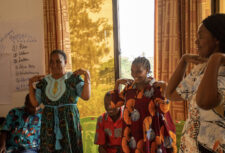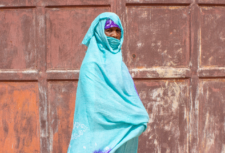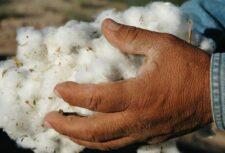Disclaimer: This article is more than 12 years old, and may not include the most up-to-date information or statistics. Please verify information with more recent sources as needed, and if you have any questions contact our Press Office.
7 November 2011
Students from Eastbourne are descending upon the European Parliament this week to demand the European Union does more to protect children in Uzbekistan from slavery.
Along with representatives from Anti-Slavery International, five year 10 students from Bishop Bell (CofE) School, Eastbourne will visit Brussels on Wednesday 7 December to deliver a petition to the President of the European Union.
Signed by 10,000 the petition calls for an end to the current European Union preferential trade tariffs for Uzbekistan until the former Soviet republic ends the practice of forcing hundreds of thousands of school children as well as adults to pick its annual cotton harvest.
The Bishop Bell school students were invited to Brussels by Catherine Bearder, MEP for South East England. The Liberal Democrat politician made the offer after being inundated with requests from constituents to take up the issue at the European Parliament.
Uzbekistan is the third largest exporter of cotton in the world and much of the cotton harvested by children in slavery makes its way to the European Union as garments produced in Bangladesh for example.
Children in Uzbekistan are rarely paid for their work and the children can pick up to 50 kg of cotton a day. Children are threatened with expulsion from school for refusing to take part in the harvest. Those who fail to meet their quotas or who pick poor quality cotton are reportedly punished by beatings, detention or told their grades will suffer.
Catherine Bearder MEP, said: “This petition sends a powerful message to the European Union. Brussels must make it clear there will be no trade concessions to countries ignoring child slavery. It is great to see these young campaigners willing to put their energy into raising the issue.”
Shannon Harris aged 14, from Eastbourne said: “When I learnt what was going on in Uzbekistan, it was unbelievable. Students my age are supposed to be in school studying but are being forced to work in slavery picking cotton. Why is this still happening?”
Neil Pittman, head of upper school at Bishop Bell, said: “After studying the UN Covention on the Rights of the Child, our pupils were shocked to hear that Uzbekistani children were forced by their government to work during the cotton harvest.
“The injustice of the situation was very clear to the pupils and they were concerned that cotton harvested by children may be used in the clothes they wear.”
Joanna Ewart-James, Anti-Slavery International’s Supply Chain Co-ordinator, said: “International law demands immediate action to stamp out slavery and the European Union must consistently work to end this abuse. By rewarding Uzbekistan with trade preferences the EU is ignoring the reality of state-sponsored forced child labour in Uzbekistan.”





